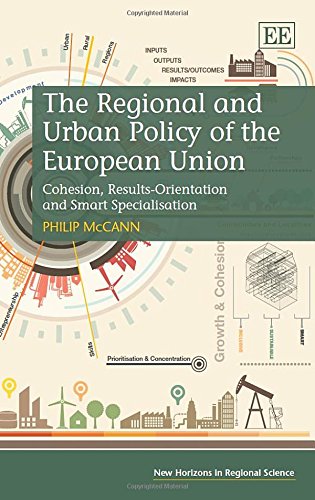

Most ebook files are in PDF format, so you can easily read them using various software such as Foxit Reader or directly on the Google Chrome browser.
Some ebook files are released by publishers in other formats such as .awz, .mobi, .epub, .fb2, etc. You may need to install specific software to read these formats on mobile/PC, such as Calibre.
Please read the tutorial at this link: https://ebookbell.com/faq
We offer FREE conversion to the popular formats you request; however, this may take some time. Therefore, right after payment, please email us, and we will try to provide the service as quickly as possible.
For some exceptional file formats or broken links (if any), please refrain from opening any disputes. Instead, email us first, and we will try to assist within a maximum of 6 hours.
EbookBell Team

4.1
40 reviews'Geographical economics has come a long way in the past two decades. It has generated new ways of thinking about how to improve development in less-favoured cities and regions, in the context of a commitment to enjoying the advantages of trade and the mobility of people and knowledge. Philip McCann's magisterial analysis of one of the most ambitious efforts ever undertaken in this area - the EU Cohesion Policy - argues powerfully for a new way forward based on respecting the different starting points of cities and regions and mobilizing their potential, and yet doing so with rigorous respect for efficiency and openness.'
- Michael Storper, London School of Economics, UK
The regional and urban development policy of the European Union, or more precisely, EU Cohesion Policy, is undergoing change. This development is driven by the enormous transformations in European regions and by shifts in thinking and analysis. The issues raised by the changes to regional and urban development policy in Europe span many academic disciplines and build on different research methodologies. A broad approach is required in order to address these issues and this book explicitly incorporates insights from a range of different disciplines.
After examining the major regional and urban features of the European economy and discussing the analytical underpinnings of the current re-design to EU Cohesion Policy, the book also aims to provide a road map of the various EU regional and urban data-sources which are available to researchers and policy-makers. This volume is aimed at all economists, geographers, regional scientists, spatial planners, transportation scientists, sociologists, urban studies researchers, environmental scholars, political scientists and policy-analysts who are interested in regional and urban issues.
Contents: Preface 1. The Backdrop to EU Cohesion Policy Debates: Europe 2020 and the Post-Crisis Economy 2. The Regional and Urban Economies of the European Union 3. The Logic and Workings of EU Cohesion Policy 4. A Reformed EU Cohesion Policy 5. Innovation, Regions and the Case for Regional Innovation Policies 6. Smart Specialisation and European Regions 7. Conclusions on the Reforms to the Regional and Urban Policy in the European Union Bibliography Index